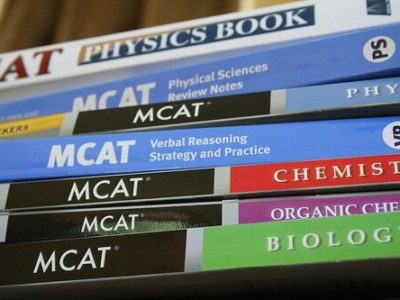Learning the alphabet used to be so easy. After ‘L’ always came ‘M,’ ‘N,’ ‘O,’ and ‘P’. Once you’re looking into graduate schools though, you realize that ‘M’ can be followed by ‘CAT,’ ‘G’ can be followed by ‘RE,’ and ‘D’ can be followed by ‘AT.’ When your whole previous knowledge of the alphabet is flipped upside down, it’s helpful to have some experts guide you through the process of applying to grad school.
The MCAT: an infamous test that decides whether you will be a surgeon or stuck in pre-school playing doctor. Eliezer Shinnar, currently a freelance Healthcare Technology Consultant in Boston, has become an expert on the MCAT. His first tip is to know how long your scores are good for: he’s now studying for round two because his scores expired and were invalidated. The first time around, Shinnar took a Kaplan course, which focused on solving problems in a group but was also accompanied by many online resources. The course forced him to start studying months in advance so that by the last three weeks before his test he was getting the scores he wanted. This time, Shinnar has gone back and studied the materials for three months since he has lost some of his expertise on the concepts. The final two months before the exam he will be taking one practice exam a week.
The GRE: the general admission test for grad school. Diane Crump-Fogle, Associate Director UMBC Career Services Center, explains that preparing course vs. book is a personal choice depending on the learner. The course focuses more on strategy and how to approach the questions rather than the content, she says. If a student is looking into taking a course, she recommends looking at offerings from Princeton Review, Sylvan Learning Center, and Kaplan. Crump-Fogle mentions two words of caution. Firstly, the GRE is currently undergoing a change in structure; therefore, she suggests re-familiarizing yourself with the test if you will be taking the newer version. Secondly, some graduate schools are doing away with test scores these days, so do your research before undergoing the added stress.
The DAT: the test that separates the people with the drills from the ones with the cavities. Sydnee Chavis, headed to Harvard School of Dental Medicine this coming fall, started preparing for the DAT “by reading prep material to see what was covered on the exam” and then transitioned into “reviewing school notes from relevant classes.” To help keep her studying on track, she also took an online Kaplan course. Her timeline consisted of seven weeks of extensive studying while taking the Kaplan course, reading the prep book, and doing practice problems. She says, “I was constantly making checklists for what material I thought I knew well versus what I needed to dedicate more study time to.” For the two weeks leading up to her test, Chavis took a full-length test every day and reviewed the outcome.



















